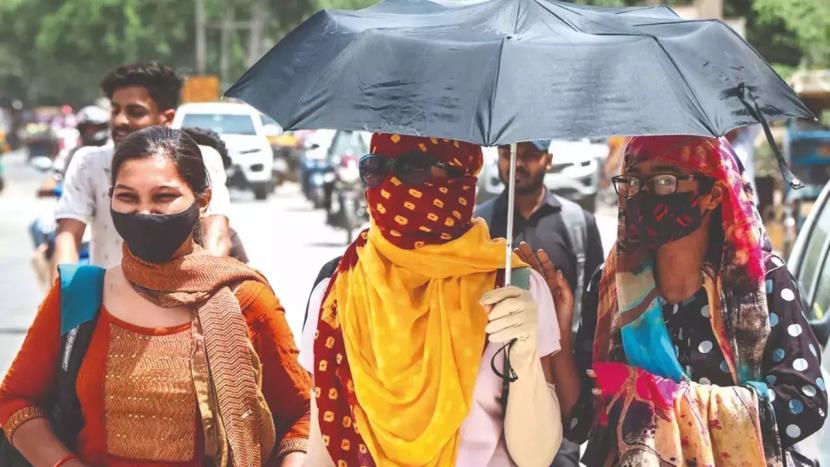NEW DELHI: As Delhi breached the 40-degree temperature mark this week, a private forecaster, Skymet Weather on Wednesday issued a warning with the prediction that heatwaves will last until the end of this month and may witness a downfall at the beginning of May.
The national capital recorded the highest temperature of 44.2 degrees Celsius at Siri Fort Complex on Wednesday. A ‘yellow alert’ has also been sounded for Delhi.
Skymet Weather said that the heatwaves will not only restrict to Delhi but will also affect the residents of North India.
Taking to Twitter, Skymet Weather wrote, “These heatwave conditions will last until the end of this month with sultry conditions affecting the residents of North India. However, heatwave conditions may see a backseat at the beginning of May.”
“Temperatures are expected to be shooting above 43 degrees. The state of Rajasthan may see maximums above 45 degrees Celsius as well. The states of Punjab, Haryana, Delhi, Rajasthan, and Uttar Pradesh are all set to see a comeback of heatwave conditions, starting April 28 until the end of the month,” the weather forecasting department further said in a tweet.
Meanwhile, IMD scientist RK Jenamani also informed that northern India will likely experience a dust storm on April 29, causing a drop in temperature from May 1 onwards.
As per the IMD, heatwave conditions in isolated pockets are very likely over Punjab, Haryana-Chandigarh, Delhi, Uttar Pradesh, Rajasthan, Madhya Pradesh, Vidarbha, Chhattisgarh, Bihar, Jharkhand, interior Gangetic West Bengal, interior Odisha and northern parts of Gujarat State.
In addition, Manmohan Singh, director of Meteorological Centre Chandigarh also said that the temperature is being recorded as warmer than normal.
“In the coming days, the temperature will rise, heatwave warning has been issued for some places in Punjab and Haryana,” he added.
Notably, Northwest India this year recorded the hottest March in 122 years, with an average maximum temperature surpassing the previous record of 30.67 degrees Celsius in 2004.
